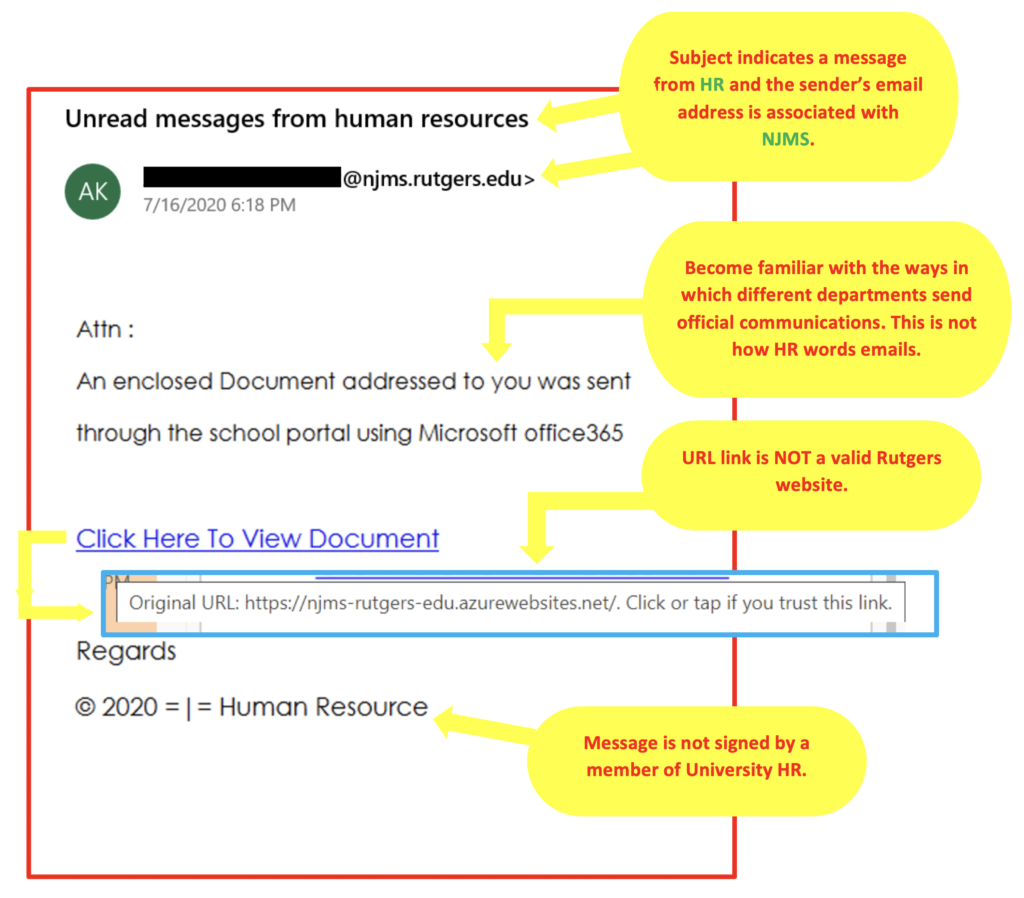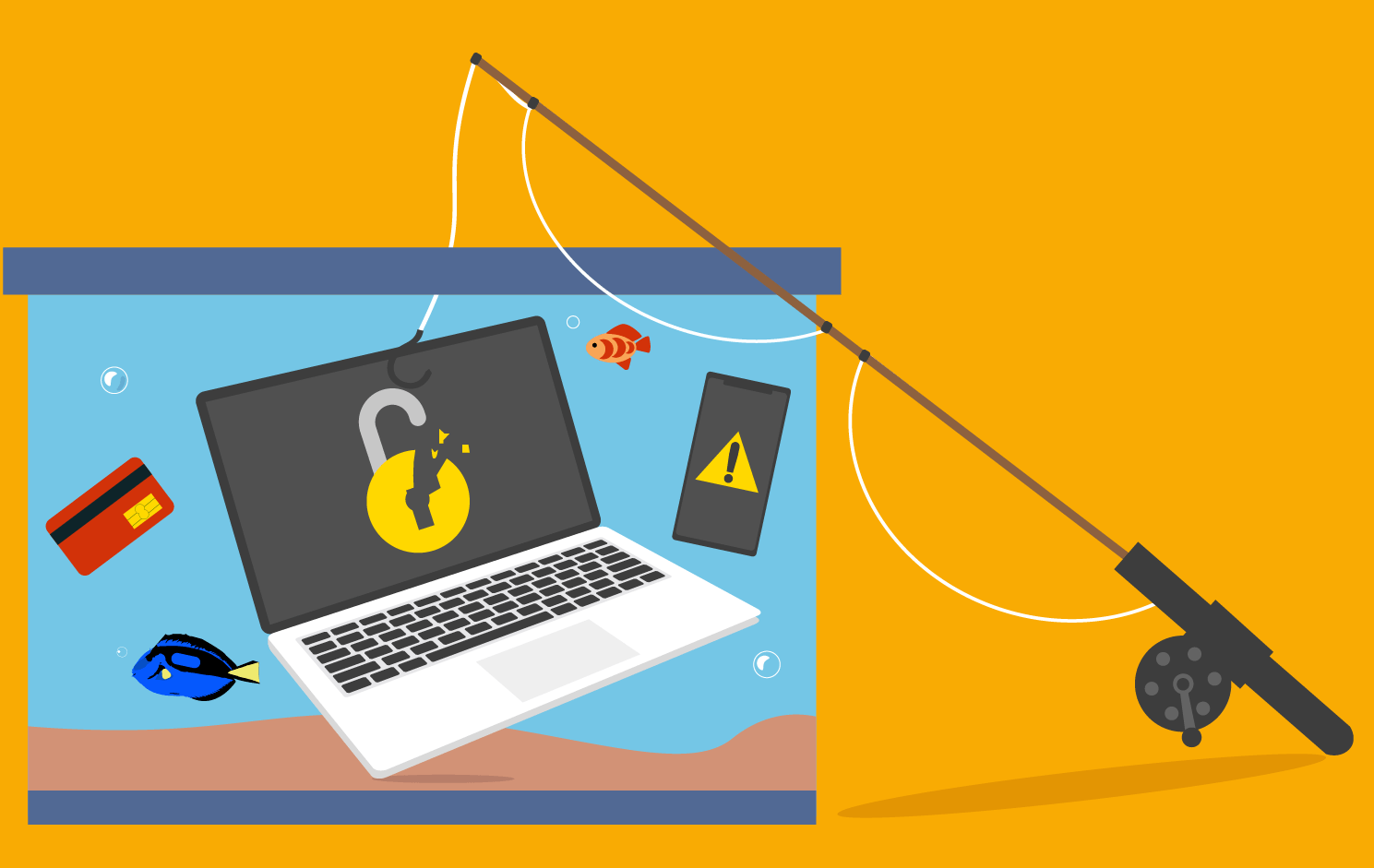Love is in the air. So are cyber scams.
February 9, 2026
Never open emails or click on links in emails that come from unknown sources
Hover over links in emails with your mouse to see if you are being redirected outside of the university domain
Never share your Rutgers credentials (NetID and password) through email, phone, or text
Verify requests to purchase gift cards, products, or services with your personal funds in exchange for reimbursement
Question unusual requests from people posing as trusted individuals like deans, professors, business managers, or IT staff


Smishing is when cybercriminals attempt to steal personal information through fraudulent text messages. Find out how you can protect yourself.

A form of phishing that targets individuals, teams or departments within an organization by impersonating an individual or trusted entity to gain access to a user’s account.